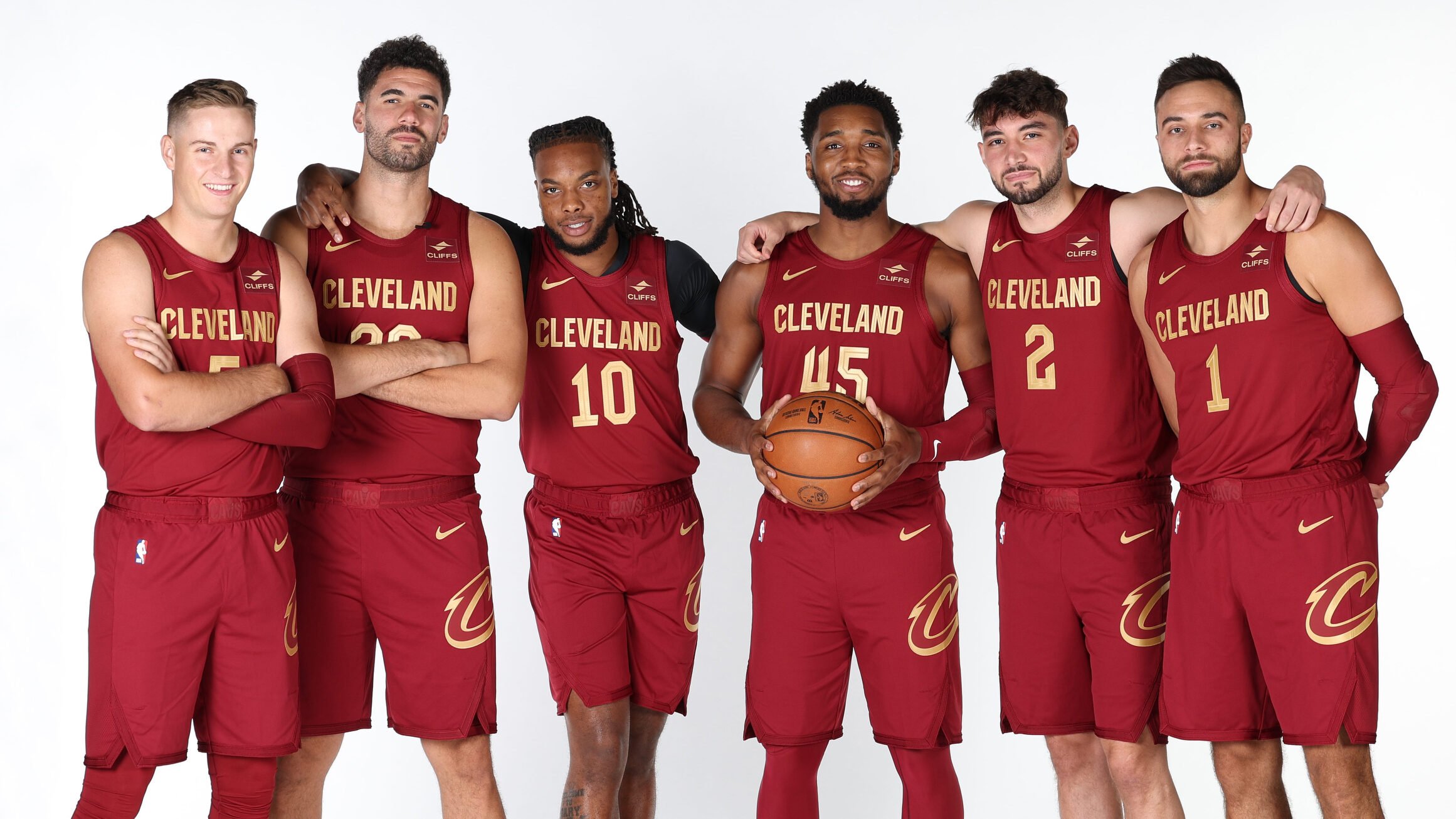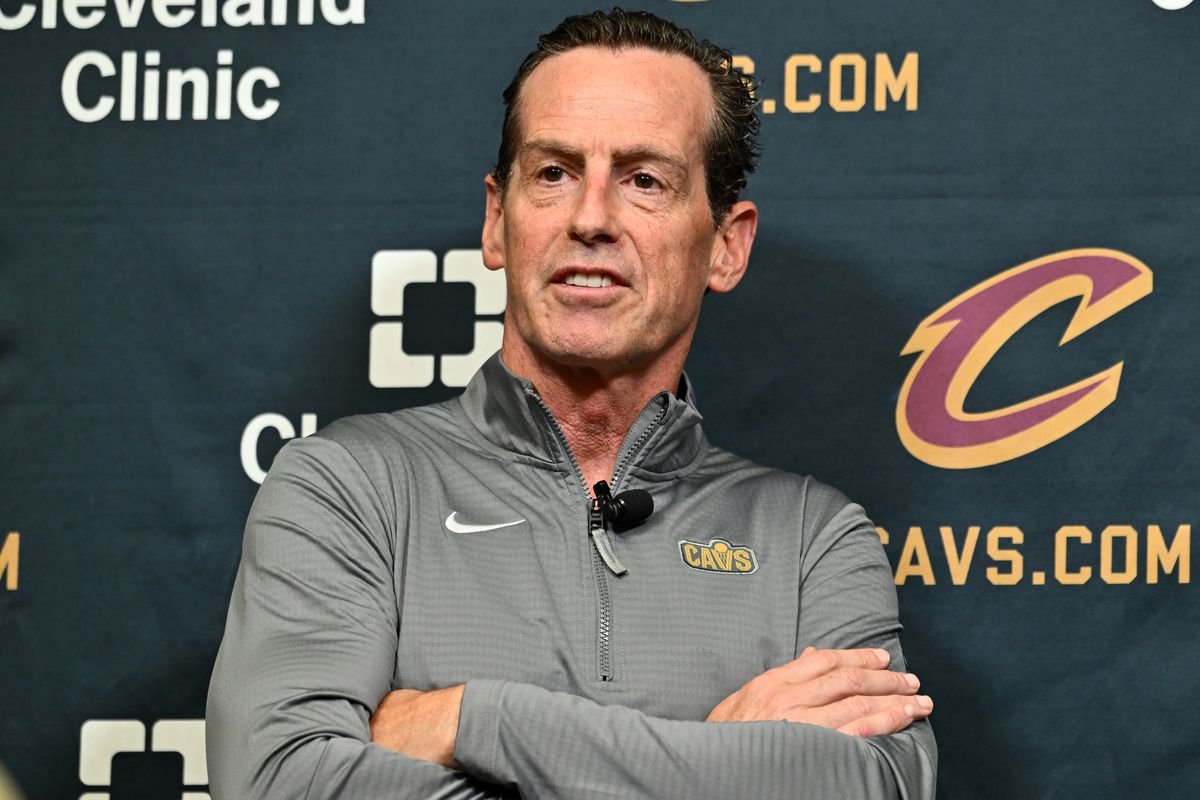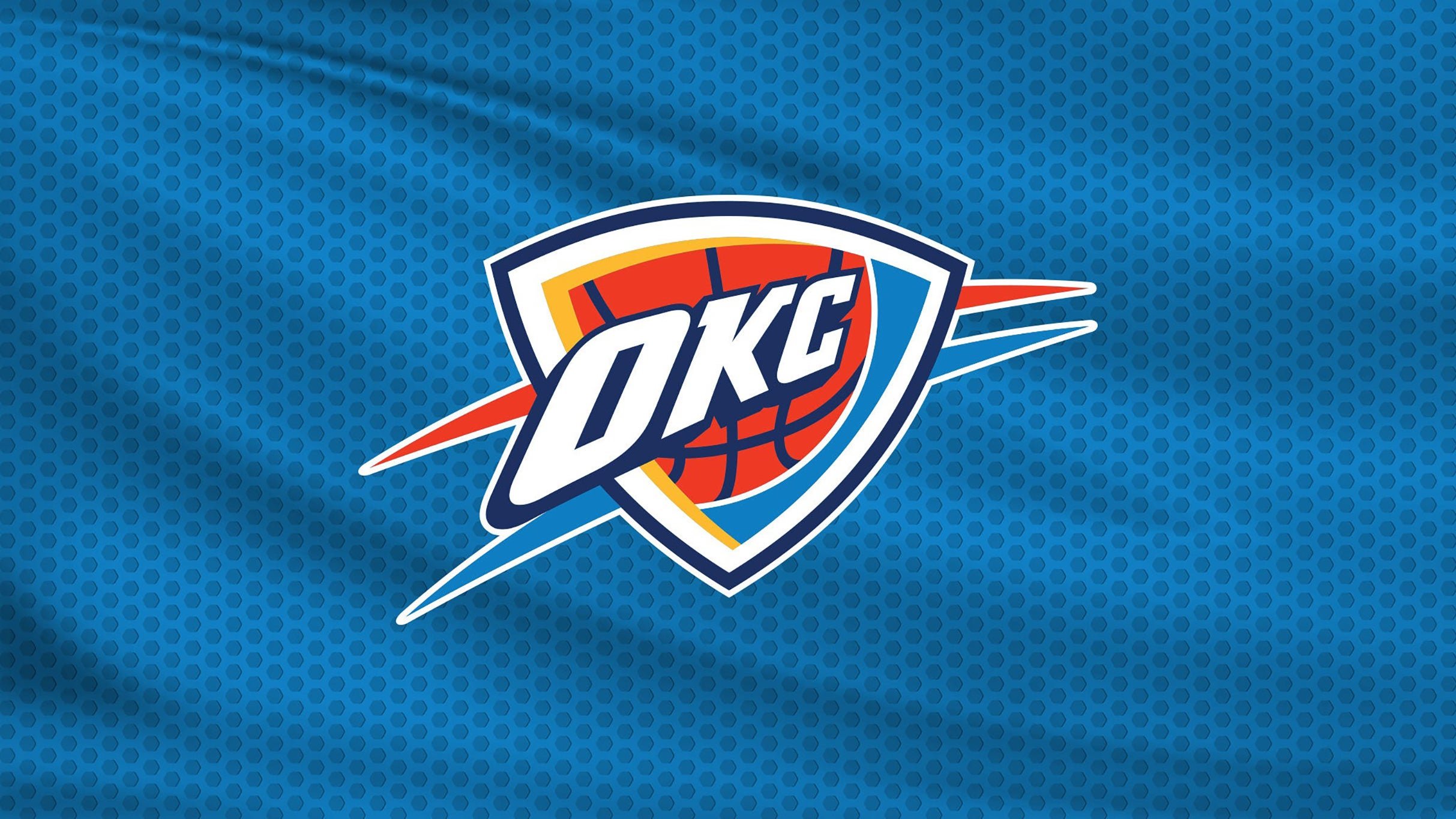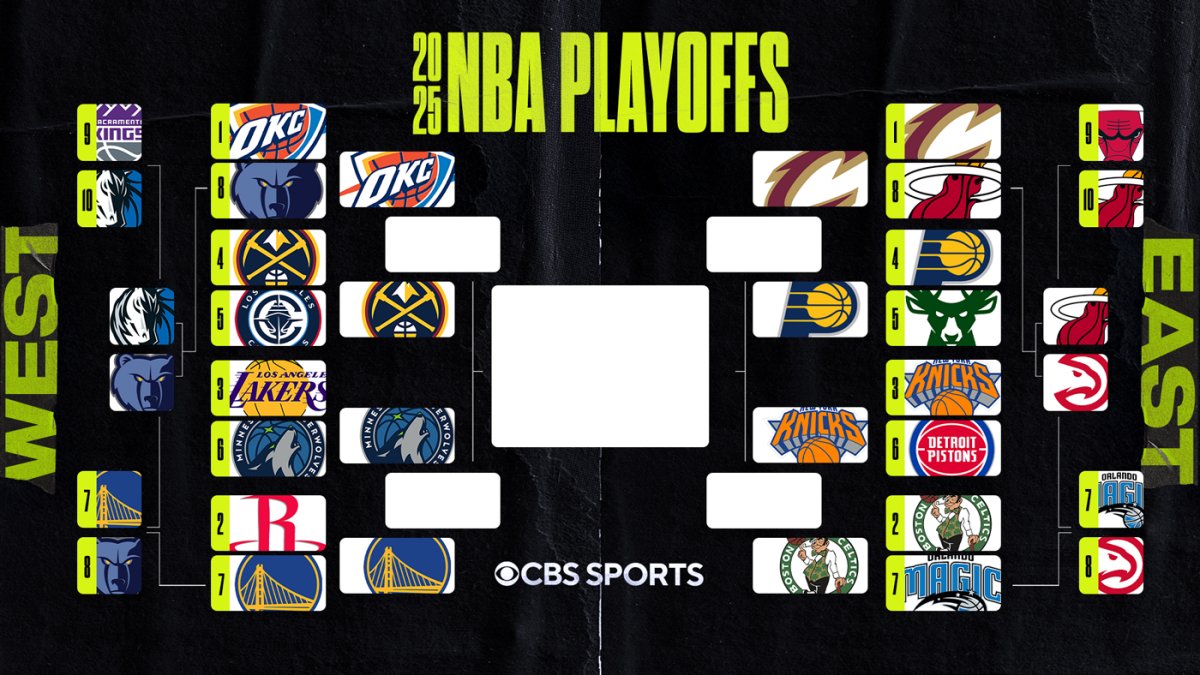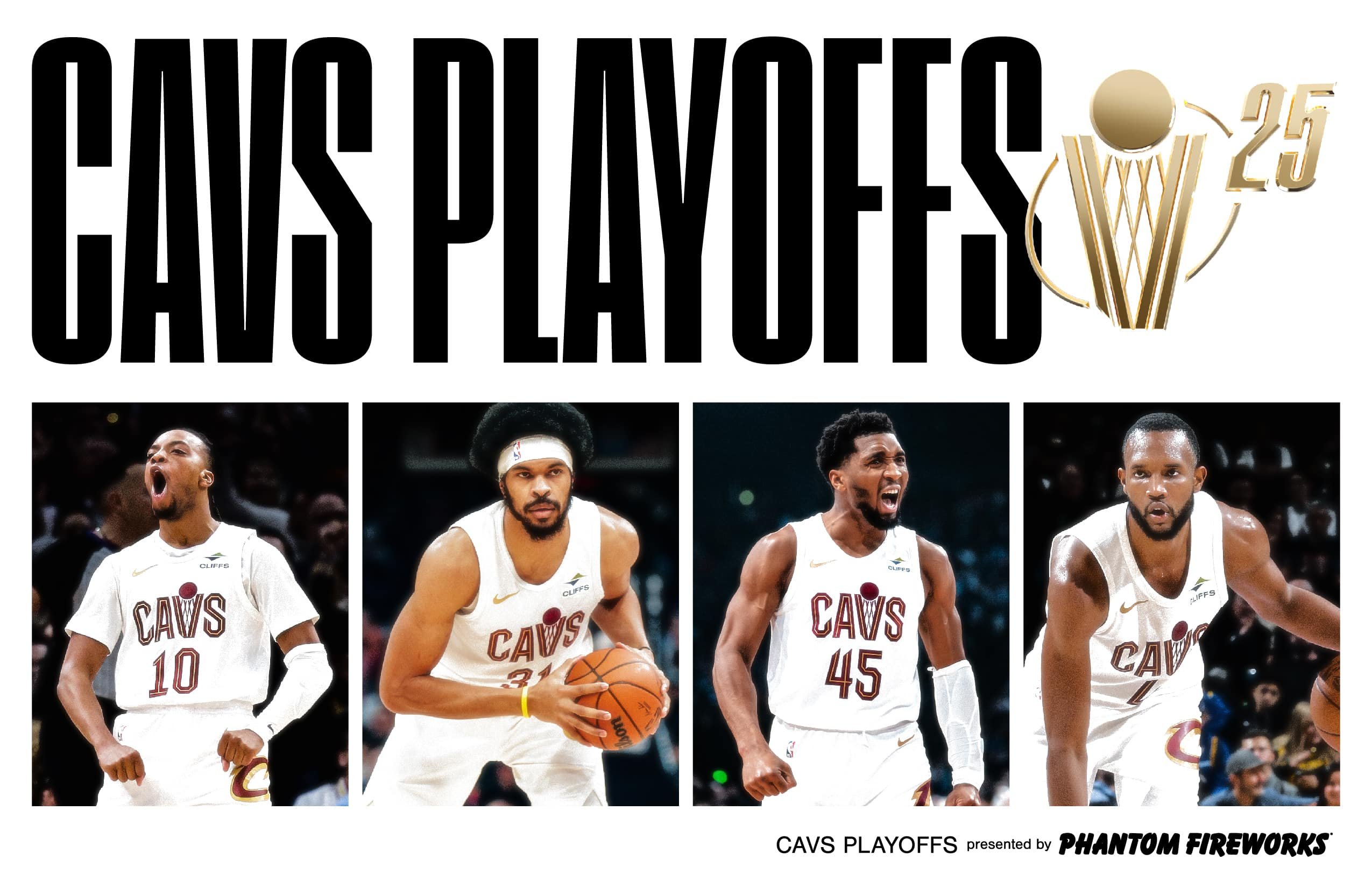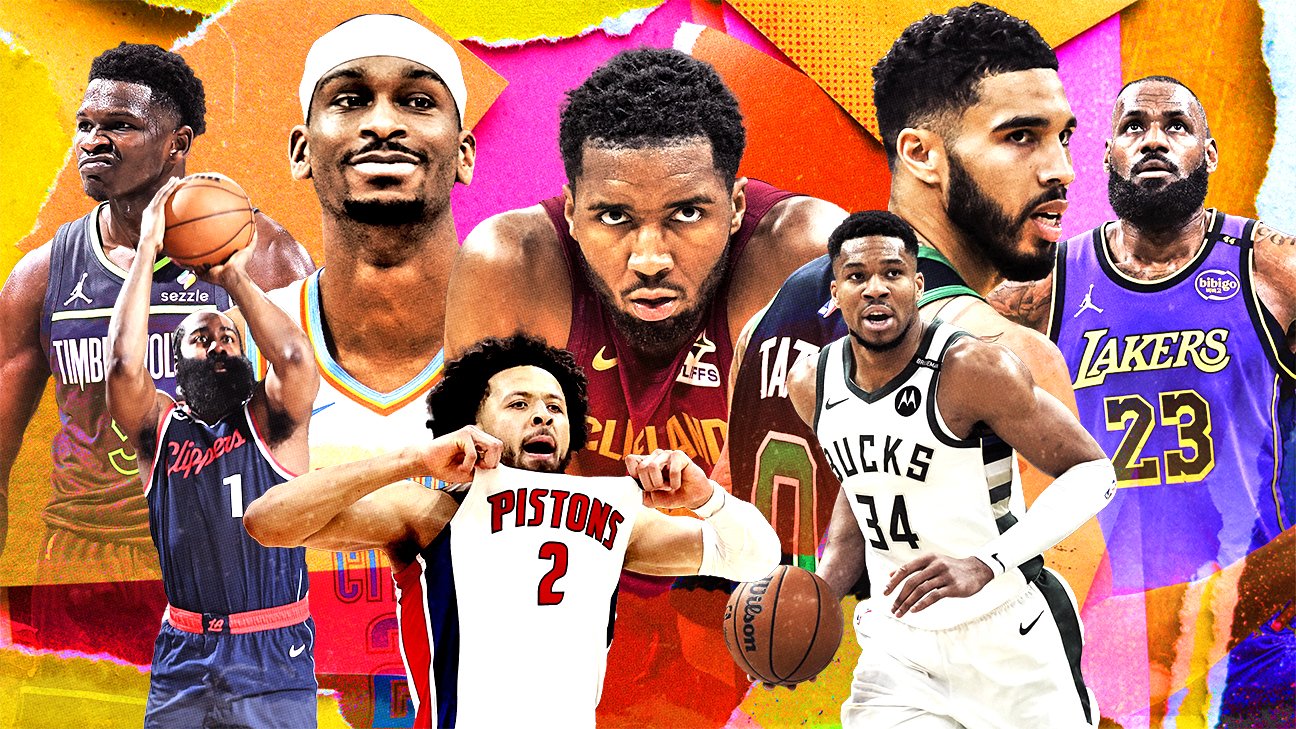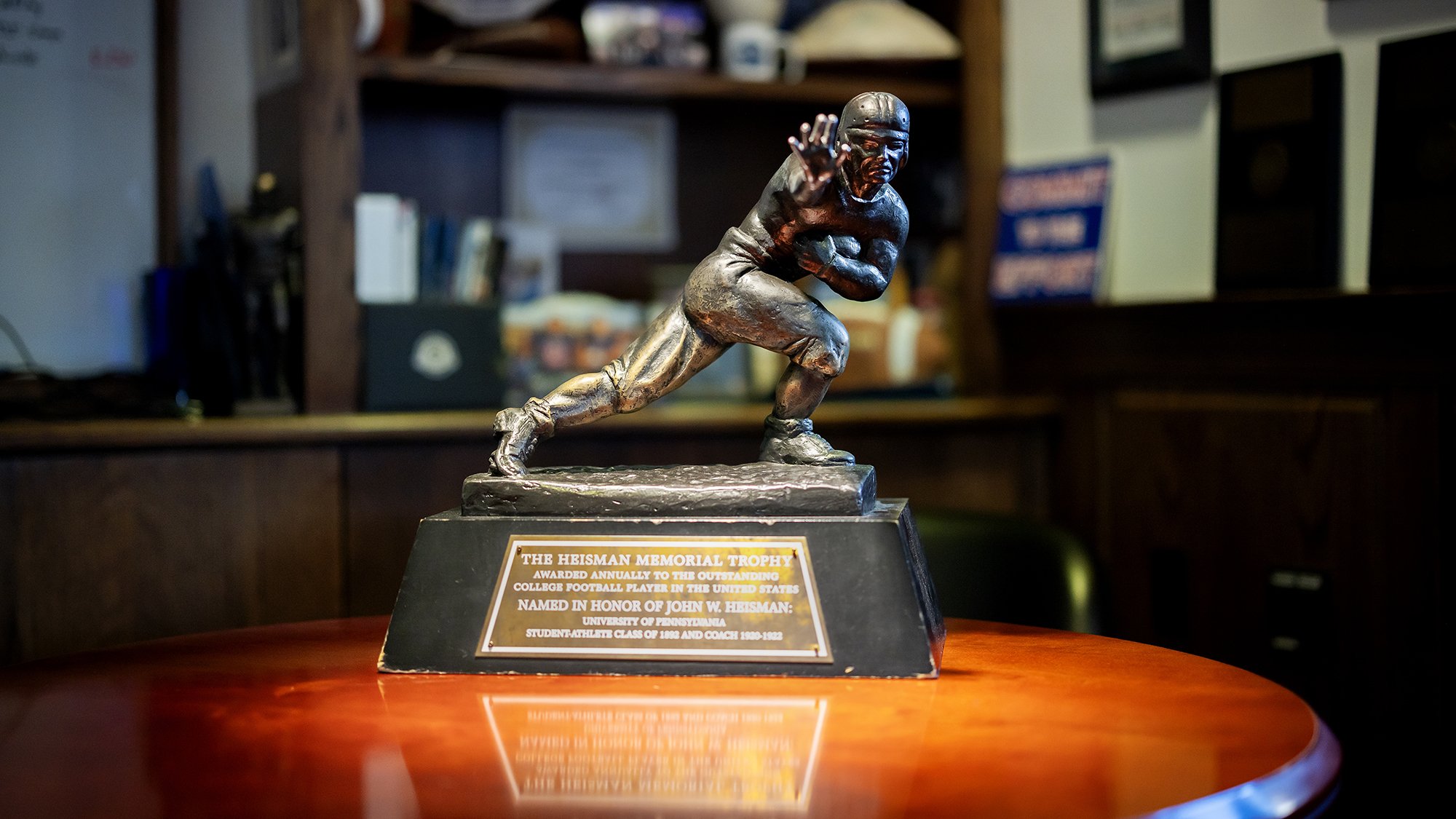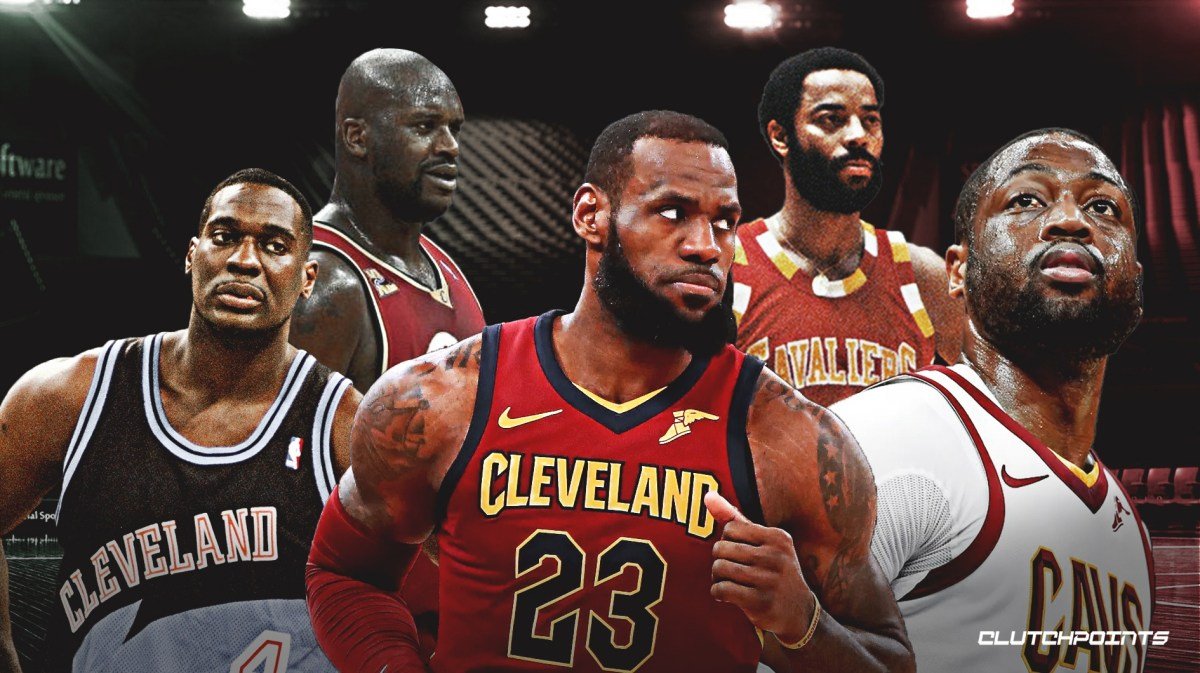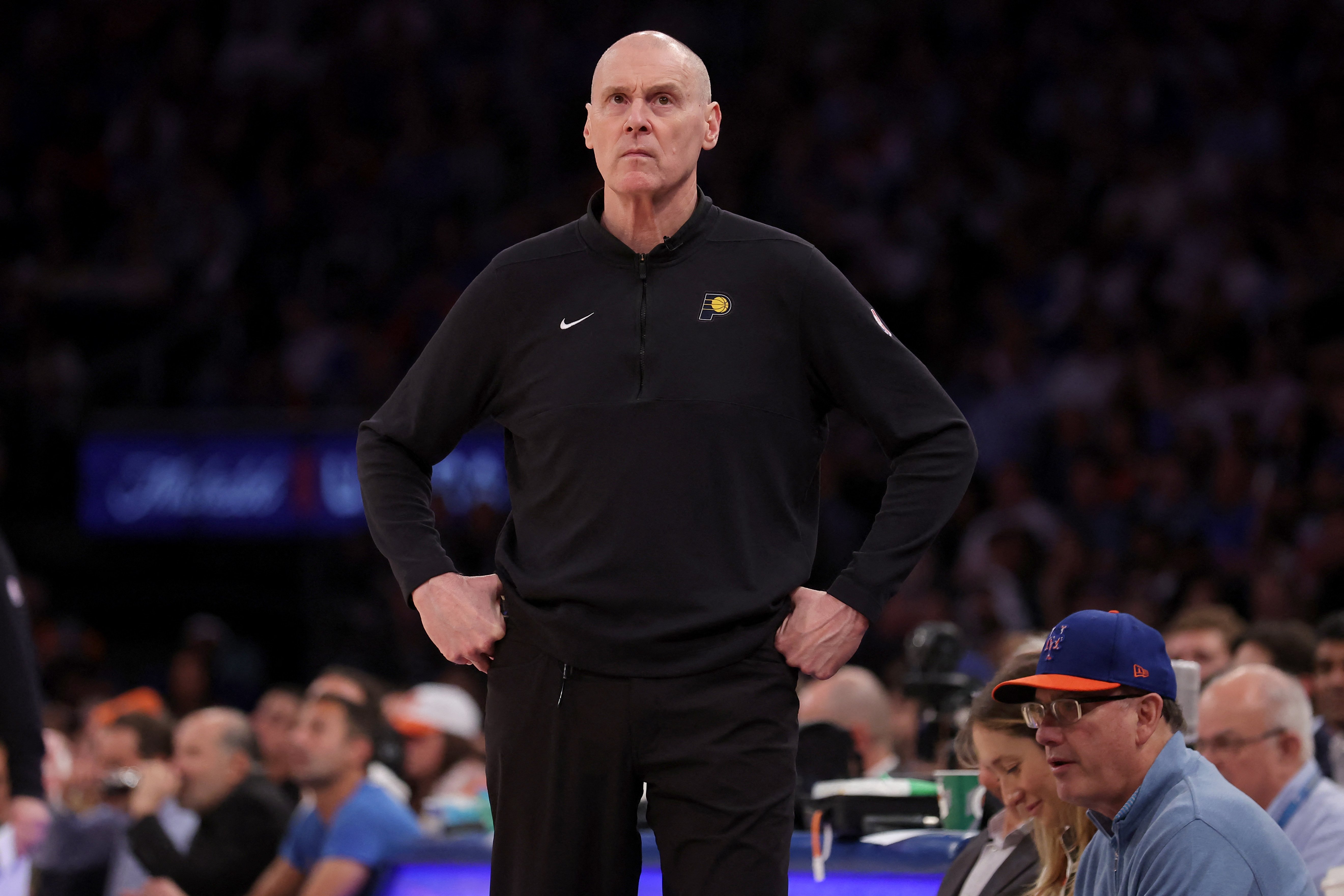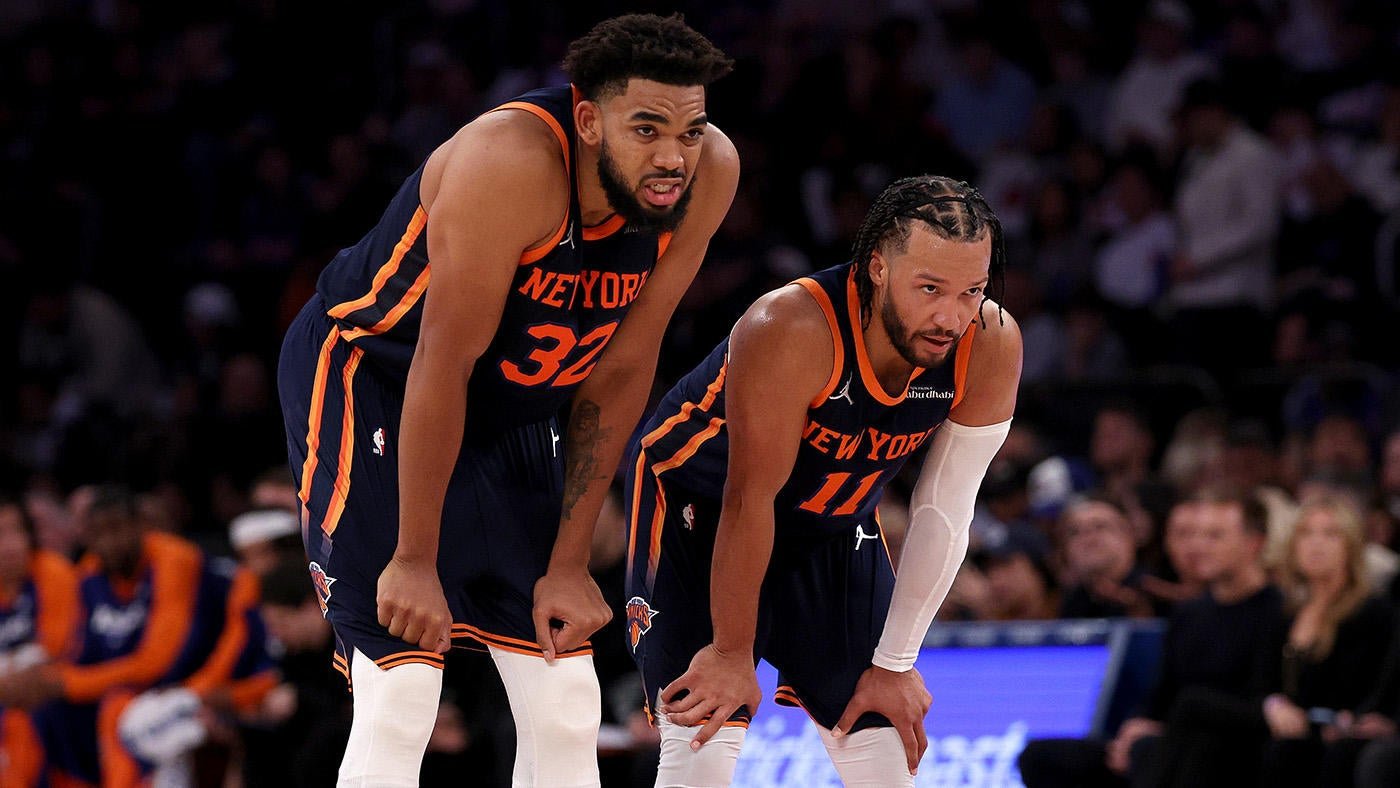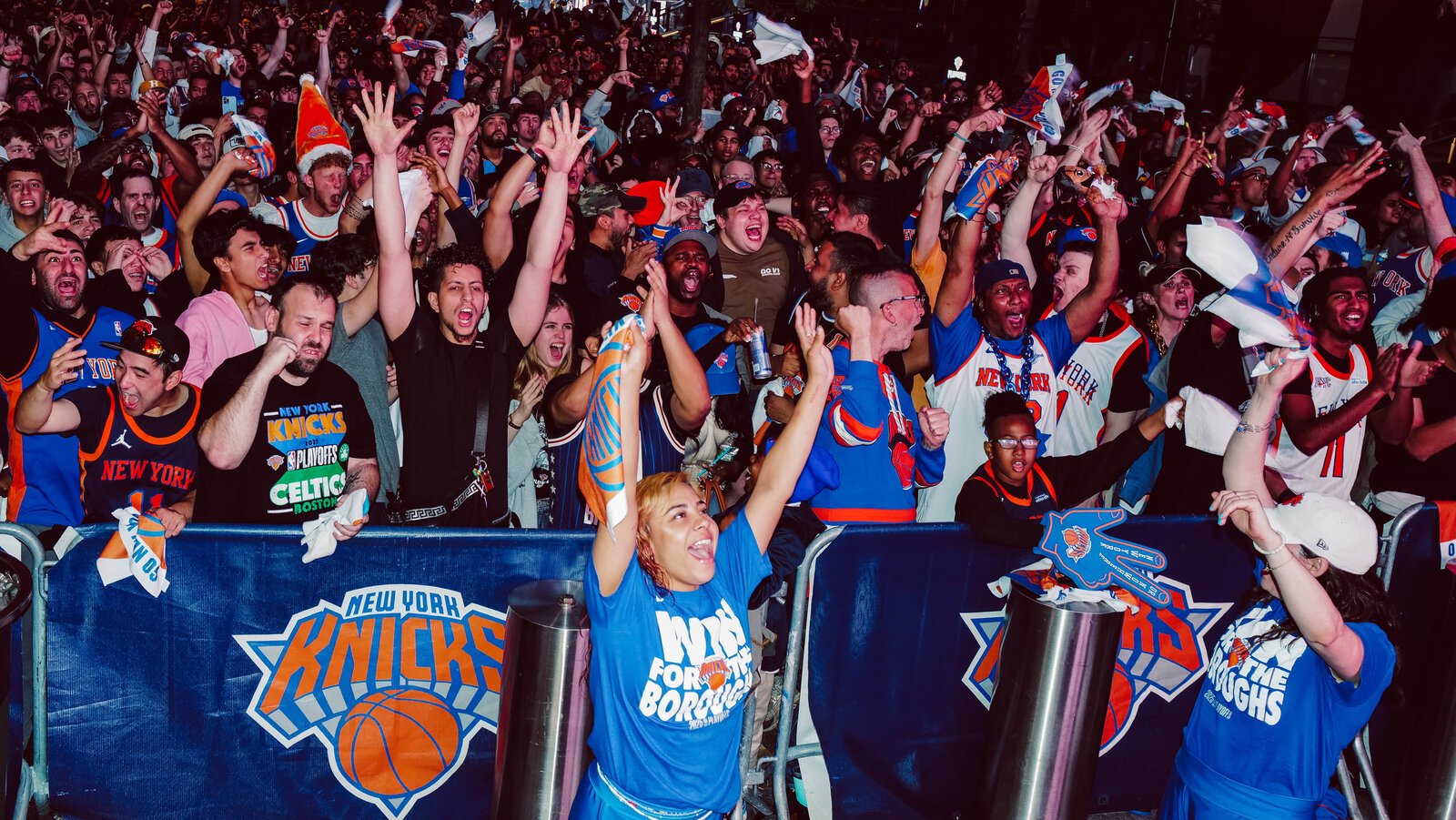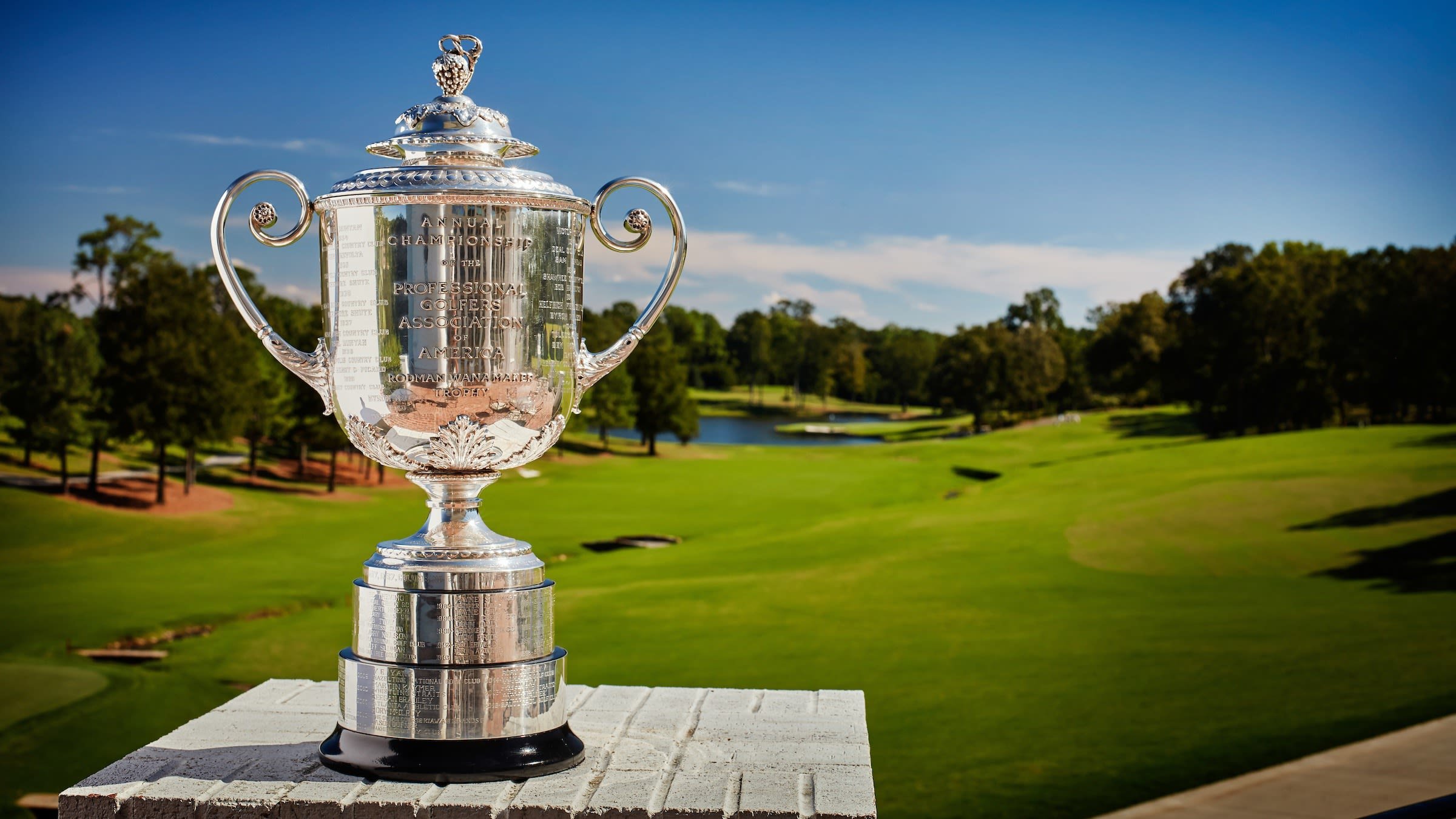The 2025 NBA Eastern Conference semifinals brought high drama in Game 2 as the Cleveland Cavaliers suffered a tough 120-119 defeat to the Indiana Pacers. Even after the NBA acknowledged several missed calls in the final minute – some of which directly influenced the outcome – Cavaliers coach Kenny Atkinson has made it clear that he is more concerned with his team’s play and their lost 20-point lead than the officiating. Game 2 was played on Tuesday night in Cleveland, and by Wednesday, much of the basketball world was buzzing over the league’s “Last 2-Minute Report.” The series shifted to Indianapolis for Game 3 on Friday.
While fans and analysts dissect the questionable last-minute calls, Atkinson has turned his focus inward, examining what went wrong for the Cavs down the stretch and what needs to improve. The spotlight is on how the Cavaliers, who once seemed in control, allowed the Pacers and Tyrese Haliburton to snatch victory. The reactions of coaches, league officials, and players continue to shape the conversation ahead of the rest of the highly competitive series.
Kenny Atkinson’s Perspective on Game 2 Loss
Kenny Atkinson didn’t hold back when asked about Cleveland’s Game 2 collapse but didn’t point the finger only at the referees. “I think we always have recency bias. So what happened in the last 30 seconds? It’s like, how’d you lose that 20-point lead,” Atkinson stated after the loss. His approach was measured, choosing to focus on the full picture – a combination of coaching decisions, mistakes by players, and missed calls.
While acknowledging that referees are not perfect, Atkinson made it clear that blaming the officials would be missing the bigger picture. Instead, he emphasized the importance of examining the team’s overall play, especially down the stretch. “We all made mistakes. And then if you put it kind of a ledger, you add all those up and their minus-20 goes to, oh my gosh. We had plenty of decisions where we could have made it.”
Atkinson, who was recently named NBA Coach of the Year, understands the scrutiny that comes with playoff basketball. The playoffs demand accountability from everyone involved, and Atkinson set the tone by refusing to take the easy way out and pin the loss entirely on officiating errors.
This willingness to absorb responsibility and redirect the conversation toward his own team may have a calming effect inside the locker room. Cleveland heads into Game 3 with the message clear from their coach: they control their fate by cleaning up their own execution and mentality.
NBA Last 2-Minute Report Explains Missed Calls
On Wednesday, the NBA released its official Last 2-Minute Report for Game 2, detailing three significant missed calls in the closing moments. These reports are a standard practice when games are decided by three points or fewer in the final two minutes of regulation or overtime. The findings validated frustrations but also serve as an important transparency tool for teams, media, and fans alike.
According to the league’s report, there were two missed lane violations and one missed defensive 3-second violation. These errors had direct consequences in a game that ended with a razor-thin margin. The report provided a breakdown of each instance, making it clear where the officiating crew failed to enforce the rules.
In such high-stakes situations, these missed calls do not go unnoticed. The NBA’s transparency is welcomed, but it rarely offers much consolation to the losing team or its fanbase. Playoff games often come down to fine margins, and the NBA’s admission shines a spotlight on the critical nature of late-game officiating. Still, the league does not reverse results based on the report’s findings.
For the Cavaliers, the report reinforced what they experienced in real time, but it also aligned with Atkinson’s message: officiating wasn’t the sole reason for the defeat. The Last 2-Minute Report is an essential element for league accountability, even if it can’t erase a painful loss.
The Controversial Lane Violation on Tyrese Haliburton
Arguably the most pivotal missed call of Game 2 involved Tyrese Haliburton, who the NBA said should have been called for a lane violation with just 12.4 seconds to go. The Pacers trailed Cleveland 119-117 at that moment, and Haliburton crossed the free throw line before the ball touched the rim on a missed foul shot. Despite the infraction, play continued, and Haliburton managed to gain possession after the rebound was deflected, then stepped out for a step-back three-pointer from the top of the key – the game-winning shot.
The sequence drew instant controversy, with television replays and slow-motion angles making the lane violation obvious to viewers and analysts. However, the officials missed it live, giving Indiana a critical second chance. The NBA’s confirmation only added fuel to what fans already saw. Multiple Cleveland defenders also stepped into the lane early, adding to the confusion.
Also Read
Oklahoma City Thunder’s Relentless Defense Powers Historic Season
Haliburton’s three-pointer didn’t just win the game, it shifted the momentum of the entire series. For the Cavaliers, knowing that the play should have been stopped creates added frustration but can also serve as motivation heading into the next game.
Multiple Lane Violations and Missed Defensive 3-Second Call
The NBA report didn’t single out just one mistake in the closing moments. With 48 seconds left, another missed lane violation occurred – this time on a missed free throw by Indiana’s Pascal Siakam. Aaron Nesmith of Indiana capitalized on the missed call, grabbing the rebound and scoring a dunk that cut Cleveland’s lead to 118-113. The NBA said multiple players entered the lane too early, affecting the play’s outcome.
Just seconds later, Cleveland’s Donovan Mitchell remained in the lane for longer than the permitted three seconds on defense, which should have resulted in a defensive 3-second violation. That missed call would have given Indiana a technical free throw and possession, potentially swinging the game even further. Like the lane violations, this error was confirmed by the NBA the next day.
When mistakes pile up in a single minute, the impact can be significant – especially in playoff basketball. Small errors in rule enforcement become magnified in high-pressure moments. For Cleveland, these missed calls contributed to their sudden collapse. But the same report also noted that these mistakes weren’t one-sided, as multiple players from both teams committed violations.
Also Read
NBA Playoff Player Props and Best Bets for Friday, May 9: Top Picks for Indiana vs Cleveland and Nuggets vs Thunder
The league’s detailed review process is meant to drive officiating improvement. But for the teams involved, knowing exactly what went wrong can only go so far. It’s a reminder that players, coaches, and referees are all under pressure in the postseason spotlight and that each detail counts in the chase for a championship.
How the Cavaliers Lost a 20-Point Lead
The Cavaliers were in full command for much of Game 2, building a 20-point lead in the second half. Their control began with smart shot selection, aggressive rebounding, and a relentless defensive approach. For a while, it seemed like Cleveland would coast to a routine playoff win at home.
However, as the second half progressed, the Pacers began to chip away at the lead. Cleveland struggled with turnovers and missed crucial opportunities at the rim. Indiana increased their defensive intensity and started finding openings with off-ball movement and quick passing. A combination of hard-nosed defense and timely three-pointers shifted the energy inside Rocket Mortgage FieldHouse.
Cleveland’s offense went cold during critical stretches. The Pacers’ pressure forced tough shots late in the shot clock and baited the Cavaliers into rushed, low-percentage attempts. At the same time, Indiana capitalized on second-chance points and made the most of every Cleveland mistake.
Also Read
2025 NBA Playoffs Second Round Schedule, Bracket, and Key Dates
This loss of composure hurt the Cavaliers’ ability to close out the game. The inability to protect the basketball or execute in key moments undercut a strong first half. By the final minutes, the momentum had completely swung the Pacers’ way, putting Cleveland’s season on the line and raising serious questions before heading to Indiana for Game 3.
Indiana’s Late-Game Surge and Haliburton’s Game Winner
Indiana’s comeback hinged on a furious run in the game’s final moments, capped by Haliburton’s clutch play. The Pacers outscored the Cavaliers 8-0 in the last 47.9 seconds, with each possession carrying big consequences in the series. Indiana’s confidence never wavered, even when they were down by double digits in hostile territory.
Haliburton’s shot will likely be remembered as one of the defining plays of the series. Receiving the rebound off his own free throw miss (amid the missed lane violation), Haliburton calmly dribbled out and sank a deep three at the top of the arc. The poise to deliver in that moment demonstrated why he’s considered one of the rising stars in the league.
Other Pacers, like Aaron Nesmith and Pascal Siakam, made equally important contributions in the closing minute. Nesmith’s dunk off the offensive rebound was another missed call moment, and Siakam’s presence in the lane drew Cleveland’s defense and opened space for outside shooters. Indiana’s teamwork in crucial possessions illustrated why they remain a threat to any team in the East.
Also Read
Heisman Trophy Hopefuls for Every Top 25 Team Ahead of the 2025 College Football Season
The Cavaliers, meanwhile, were forced into tough shots and couldn’t find their rhythm as the Pacers seized control. As a result, the series dynamic has changed dramatically going into Game 3. Indiana now holds both momentum and a 2-0 lead as the action shifts to their home court.
Reactions from Kenny Atkinson and Coaching Decisions
Atkinson’s approach after the loss was noticeably different from other coaches in similar situations. Rather than calling out officials or blaming outside factors, he chose an analytical tone. He admitted that coaching choices, such as late-game adjustments and substitutions, played a role in the defeat.
He went on to say that the responsibility was shared by everyone involved: “I’d say it was coaching decisions, player decisions, and then referee decisions. And we all made mistakes.” The self-aware response set an example for his squad, highlighting the importance of responding to adversity with poise and self-reflection.
This view limits distractions that often follow controversial officiating decisions. It also puts the onus on the team to learn from their mistakes rather than dwell on what they can’t control. Atkinson’s leadership style relies heavily on promoting accountability, a message he reinforced immediately following the game in practice and in his media appearances.
Also Read
Cavaliers vs Pacers Game 3 Odds, Prediction, and Key Storylines as Cleveland Looks to Recover
In the NBA playoffs, how a coach deals with adversity can shape the trajectory of an entire postseason. Atkinson’s handling of the moment reflects a trust in his players’ ability to regroup and a desire to keep the locker room united as they fight to survive in the series.
Pacers Coach Rick Carlisle’s Take on Officiating
Rick Carlisle addressed the officiating with a candid but diplomatic tone. “Look, we’re not expecting any gifts from the refs and I don’t think we got any in the first two games. I know they disagreed with some calls, it’s all part of it,” Carlisle said. He made note that Indiana has actually been whistled for nine more fouls than Cleveland across the first two games, pushing back on the idea that the Pacers are being favored.
Carlisle’s comments were calibrated to both acknowledge the controversy and keep his team focused. His perspective echoes that of many coaches during the playoffs, who understand that officiating is just one of many factors at play. For Indiana, the focus remains on execution over the long haul of a seven-game series.
By keeping a level head and supporting the officials, Carlisle avoids drawing unnecessary attention to calls that can’t be changed. This approach helps to insulate his locker room from outside noise and gives players confidence that victories are earned, not gifted.
Also Read
Jalen Brunson: Breaking Down What Makes the Knicks Star the NBA’s Most Clutch Scorer
The Pacers head coach’s response has also defused a bit of the tension between camps heading into Game 3. Both coaches, in their own way, have directed attention back to the basketball, where the real outcome will be decided.
Implications for the Remainder of the Series
Game 2’s wild finish and the ensuing fallout have changed the dynamic of the series. Indiana’s comeback gives them a commanding 2-0 lead and the psychological edge as the series moves to Indianapolis for Game 3. The Cavaliers are left searching for solutions, not just in adjusting to the Pacers’ schemes but in learning how to handle close games under intense postseason pressure.
The missed calls and blown lead ensure that both teams will be on high alert for the rest of the matchup. Coaches on both sides will no doubt have detailed conversations with their squads about discipline, focus, and execution – especially in late-game situations. Every possession, whistle, and decision will be scrutinized as the series tightens.
For Cleveland to turn things around, they must balance a sense of urgency with composure. They need to recover mentally from letting Game 2 slip away and find ways to disrupt Indiana’s late-game flow. The Pacers, meanwhile, will look to maintain their edge, use the energy of their home crowd, and keep pressure on the Cavaliers.
Both fanbases will be watching closely, knowing that another close game could swing the series decisively. Postseason basketball is often a test of resilience, and how both teams respond to this controversy will define not just this series, but their playoff legacies.
